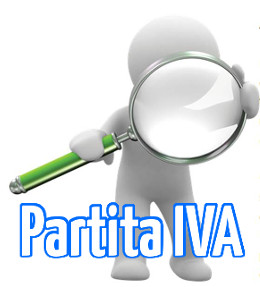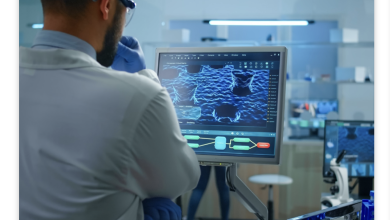
False agent contract
 The jurisprudence on the merits now excludes the possibility of qualifying a service that presents aspects of continuity and stability as business procurement and, therefore, excludes the very existence of the figure of the "continuous business
The jurisprudence on the merits now excludes the possibility of qualifying a service that presents aspects of continuity and stability as business procurement and, therefore, excludes the very existence of the figure of the "continuous business
What characterizes an agency contract is the fact that the intermediary has been entrusted by the principal with a permanent mandate to negotiate, even if there is only one client.
Request: A principal gave me a contract as a business agent 5 years ago and pays me commissions on the basis of six-monthly invoices, generically referred to "business". Although the amounts are not significant, the activity I carry out is not limited to simple reports, but rather it is completely similar to the one I carry out on behalf of other principals with whom I have a traditional agency mandate in progress. How do I prove that this is also an agency relationship? And then, is it true that an agency contract must always have exclusivity?
Answer: In fact, also on the basis of what you described in the application sent to us, there are elements which, independently of the name given to the contract and independently of the description inserted in the invoice, lead back to the relationship in question within the agency.
It concerns, in particular:
1) of the continuous multi-year duration of the service;
2) the constant and periodic issue of commission invoices referring to a clear intermediation activity and to specific time spans (six-monthly, annual…). In this regard, it should be noted that the periodic repetition of the service constitutes an important index of stability;
3) of the plurality of deals promoted which are referred to in each single invoice despite the generic mention of a set of deals in the description of the same; in fact, the number of transactions concluded in the name and on behalf of the principal is usually an important indicator of the permanence, continuity and stability of the relationship established;
4) the recognition of the fee upon "successful completion" of the deal detailed in the invoice, typical of the agency, and paid following a simple reporting activity as happens for the "procurement" activity;
5) of the application in the invoices of the withholding tax of 23% on the 50% of the taxable amount liquidated, thus identifying the commission nature of the compensation.
What characterizes an agency contract is the fact that the intermediary has been entrusted by the principal with a permanent mandate to negotiate, even if there is only one client.
 Even the jurisprudence on the merits now excludes the possibility of qualifying a service that presents aspects of continuity and stability as business procurement and, therefore, excludes the very existence of the figure of the "continuous business agent".
Even the jurisprudence on the merits now excludes the possibility of qualifying a service that presents aspects of continuity and stability as business procurement and, therefore, excludes the very existence of the figure of the "continuous business agent".
As for the second question, the answer is absolutely negative. It is not necessary that the relationship provides for exclusivity for the purposes of configuring an agency contract. The exclusivity right envisaged by article 1743 of the civil code can be waived by the parties as envisaged by the Collective Economic Agreements.
It follows that the absence of exclusivity in a procurement contract is not such as to exclude the existence of an agency relationship.
Therefore, even where there is an ongoing relationship with the company, formally called "procacceria", but in which some of the elements mentioned above are present, the interested party is in a position to present a specific recovery report to Enasarco contributions, so that the Foundation goes to inspect the principal's accounts and consequently recovers the unpaid social security contributions.
At the same time, the interested party can dispute the qualification of the relationship with the principal and request the termination of the same, where the conditions are met, and envisaged severance indemnities.
To be sure of the existence of the elements described above, ask the Federagenti consultants to verify that they will be able to advise you on how to protect your rights.
Related news: Bargainer: The Complete Guide
_______________________________
… and the “False VAT numbers?
 Law n.92/2012 has defined two types of employment contracts: subordinate and self-employed.
Law n.92/2012 has defined two types of employment contracts: subordinate and self-employed.
This distinction arises from the need to stem an ever-growing phenomenon: that of fake matches VAT which conceal collaborations of a completely different nature, in which the element of subordination is found.
The expression "subordinate work" means a relationship whereby the worker undertakes to make his work available to an employer in a continuous and subordinate, receiving in return a remuneration for the activity carried out, the protection of the rights established by law (e.g. paid holidays and sickness, compensation in the event of involuntary dismissal, periods of expectation for serious reasons, etc.) and social security coverage.
Therefore, by entering into a subordinate employment relationship with a company, the worker undertakes a "relationship" bound by a contract, aimed at establishing - among other things - the number of working hours and the salary received. Conversely, if the same subject decides to open a VAT number to collaborate with a company, a public body, etc., he still has a contract to regulate his work, but he will be free to choose how and when to dedicate himself to it, with the only constraint being the achievement of objectives.
A self-employed contract is different from any employment. With a self-employment contract, no one will ever be able to force you to follow the hours, days and places of work. At most, they will be able to suggest you choose a useful day to spend in the company and/or indicate intermediate deliveries, thanks to which you can better organize the workflows. Working on your own means having the possibility to establish timetables, dictate economic requests and choose the most comfortable position. In fact, it is a choice that many make to have greater flexibility. When we talk about false VAT numbershowever, any distinction becomes complex: sometimes, those who choose to take the path of economic freedom then find themselves having to stay in the office for the "canonical" eight working hours or to comply with very stringent rules.
The Law makes a difference between those who can be considered gods false VAT numbers and individuals who carry out “atypical” self-employment. The following are exempt from the obligation to identify a specific project:
- commercial agents;
- professionals enrolled in a Register (e.g. lawyers, doctors, psychologists, biologists, etc.);
- members of administrative bodies (such as statutory auditors);
- those who receive old-age pensions;
- collaborators of Public Administrations;
- who carries out collaborations with Associations.
Article n.69-bis of Legislative Decree n.276/2003 allows to identify the false VAT numbers. In fact, unless proven otherwise by the customer, the services performed by workers in possession of VAT number they are reclassified as employment relationships if they occur at least two of the following conditions:
- the collaboration lasts for more than 8 months for two consecutive years (precisely, 241 days even if not consecutive);
- the fee deriving from this activity constitutes more than 80% of the annual fees received by the practitioner;
- the collaborator has a fixed workstation at one of the client's offices;
 In the case of Scientific Representatives, a distinction must be made between scientific representatives of prescription drugs who must follow Legislative Decree 219/06 and scientific representatives of parapharmaceuticals, meaning generically with parapharmaceuticals the substances and products commonly sold in pharmacies (OTC, supplements, nutraceuticals , dermocosmetics, milk for babies, devices, etc.).
In the case of Scientific Representatives, a distinction must be made between scientific representatives of prescription drugs who must follow Legislative Decree 219/06 and scientific representatives of parapharmaceuticals, meaning generically with parapharmaceuticals the substances and products commonly sold in pharmacies (OTC, supplements, nutraceuticals , dermocosmetics, milk for babies, devices, etc.).
Nel caso degli Informatori Scientifici del Farmaco (ISF) la legge non prescrive il tipo di contratto di lavoro a cui devono sottostare per cui in teoria è possibile sia il contratto da lavoro subordinato (CCNL chimici) sia il contratto di lavoro autonomo. Agli ISF però (subordinato o autonomo) è vietata qualsiasi attività di vendita per cui, se autonomo, non può essere inquadrato come agente di commercio.
On the other hand, parapharmaceutical sales reps are not bound by law so, even if both subordinate and self-employed contracts can be applied between them, the distinction is between those who have direct sales activities for whom, if self-employed, the agency contract and those who have no sales activity.
In all cases, the phenomenon of false VAT numbers which actually hide real employment relationships is widespread.
This is due to the fact that in the labor market there continues to be a profound difference in treatment and protection between subordinate workers, to whom all labor protection and social security regulations and the rights established by law and by collective bargaining apply, and workers hired with other forms of contract.
Co.co.co., interns, trainees, VAT numbers: there are many forms of personnel recruitment which, due to the type of contract used, do not allow the worker to have access to a whole series of fundamental rights, such as unemployment , sickness, maternity, etc.
VAT numbers are, according to the law, self-employed workers, i.e. those workers who, without any subordination constraints, take on the task of carrying out a work or professional service in favor of the client, without being permanently included in the company organization . The self-employed worker, at the deadline set in the self-employment contract, delivers the good or service to the customer and is paid with the agreed amount. At that point, once the payment has been received, the self-employed person issues an invoice in favor of the customer and independently pays the taxes and social security contributions to his/her reference social security institution.
The false VAT numbers are those workers who, despite being formally employed as self-employed workers, are actually real ones subordinate workers as, in the actual performance of the relationship, they carry out their work in the manner typical of employee work.
There are a number of elements that characterize the method of conducting the employment relationship from which it can be inferred that it is a false VAT number.
Among these elements we can indicate, among others, the fact that the self-employed worker hired with a VAT number:
- is subject to the employer's directives in carrying out the work;
- must respect a fixed working schedule;
- must go, to carry out the work, to the place indicated by the employer;
- uses the tools made available by the employer to render the service;
- must communicate in advance any absences;
- performs a completely similar activity to other colleagues hired as employees;
- is permanently included in the employer's corporate organization.
- must periodically report on its activity
The employment relationship with the false VAT number, on the initiative of the worker himself or through an assessment conducted by the inspection bodies of INPS, Inail or the Labor Inspectorate, can be reclassified into a subordinate employment relationship from the date of its inception.
From the requalification of the relationship derives the worker's right to receive the so-called pay differences (where existing), i.e. the difference between the remuneration that would have been due to the worker if he had been hired from the outset as an employee and the remuneration received as a VAT number.
Furthermore, INPS and Inail can ask the employer to pay all the social security and welfare contributions that he would have had to pay if the worker had been hired from the outset as an employee.
Finally, the employment relationship becomes an open-ended employment relationship, with all the consequences of the case in terms of modification of duties, transfer, dismissal, protection of the worker in the event of illness, accident, pregnancy, handicap, etc.
Related news: False VAT numbers. Two emblematic sentences





